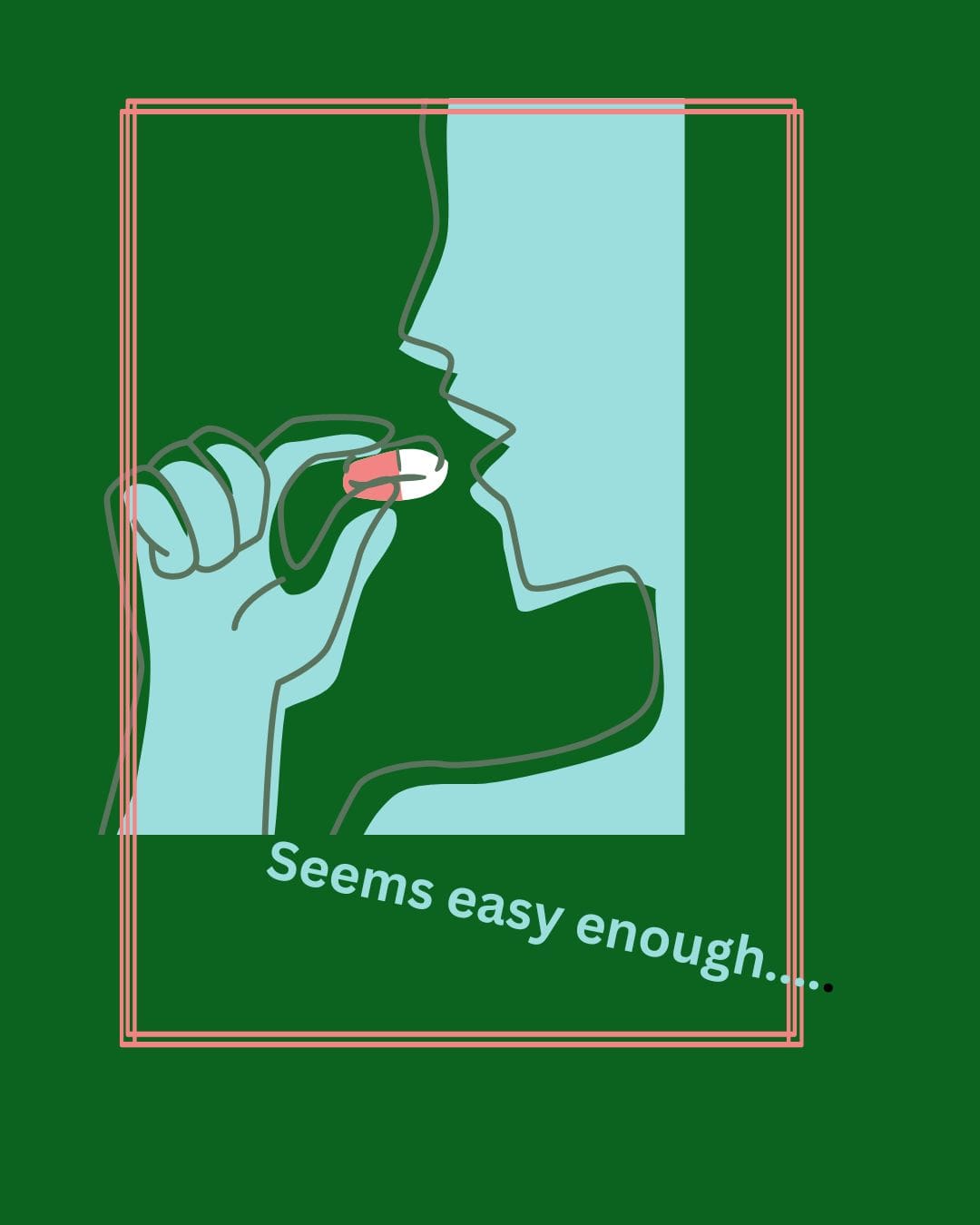You Want Me to Swallow What?

Pharmacokinetics and Challenges in Digesting Pills
Pharmacokinetics is the study of how drugs and supplements move through the body, focusing on four key processes: absorption, distribution, metabolism, and excretion (ADME). These processes determine how effectively a medication works and how long it stays in the system. While oral medications, such as pills, are a common and convenient way to administer drugs, various challenges can arise in their digestion and absorption, affecting their overall effectiveness.
Pharmacokinetics of Oral Medications
When a person swallows a pill, the drug must first dissolve in the stomach or intestines before being absorbed into the bloodstream. Once absorbed, the drug is distributed throughout the body, reaching its target sites. The liver plays a crucial role in metabolizing drugs, breaking them down into active or inactive forms. Finally, the drug and its metabolites are excreted primarily through the kidneys or liver. The rate and efficiency of these processes determine how well the drug performs its intended function.
Challenges in Digesting Pills
Several factors can interfere with the proper absorption and metabolism of oral medications:
- Gastrointestinal Issues – Conditions such as acid reflux, irritable bowel syndrome (IBS), or gastroparesis (delayed stomach emptying) can slow down or prevent pills from dissolving properly. This can lead to reduced drug absorption and decreased effectiveness.
- First-Pass Metabolism – Many drugs undergo significant breakdown in the liver before they reach circulation. This “first-pass effect” can reduce the amount of active drug available in the body, sometimes requiring higher doses or alternative administration routes (e.g., Gutless Topical Supplements)
- Food Interactions – Some foods can interfere with supplement absorption. For example, oxylates (green vegetables, beans, beets, teas) can bind to calcium, iron, magnesium, potassium, and sodium, preventing their proper absorption. Similarly, legumes inhibit the same minerals from being absorbed
- pH Sensitivity – The stomach’s acidity affects how well supplements dissolve. Some medications require an acidic environment, while others break down too quickly if exposed to stomach acid. That’s why some pills are enteric-coated to prevent dissolution in the stomach and ensure absorption in the intestines. Gutless Topical Supplements bypasses the gut entirely!
- Swallowing Difficulties – Elderly patients and individuals with dysphagia (difficulty swallowing) may struggle to take pills, leading to incomplete dosing. In such cases, topicals such as Gutless Topical Supplements, liquid formulations or dissolvable tablets may be necessary.
Pharmacokinetics plays a crucial role in ensuring that drugs work effectively in the body. However, challenges in digestion and absorption can impact a medication’s effectiveness. Thats why we recommend giving your gut a rest! Gutless Topical Supplements is a whole new way to get your RDA.
